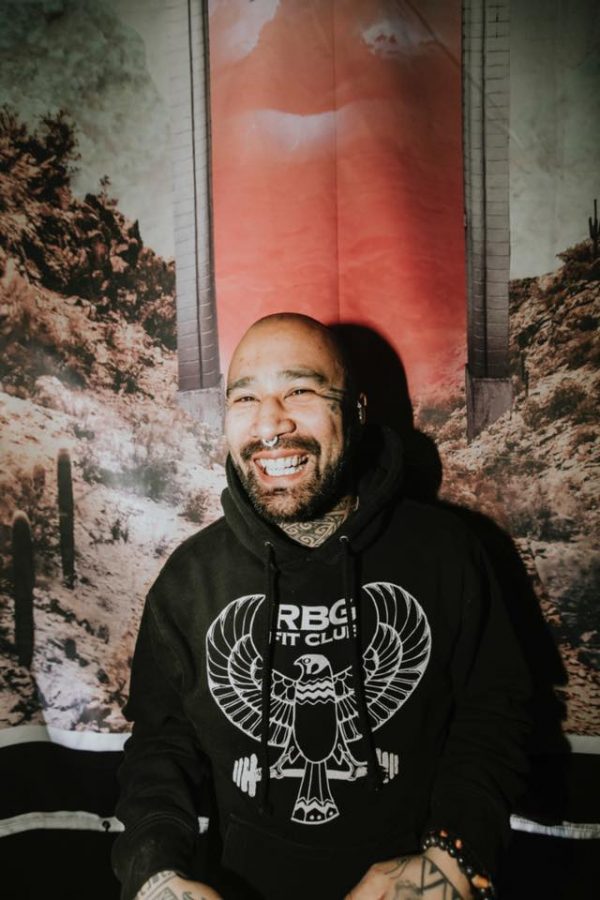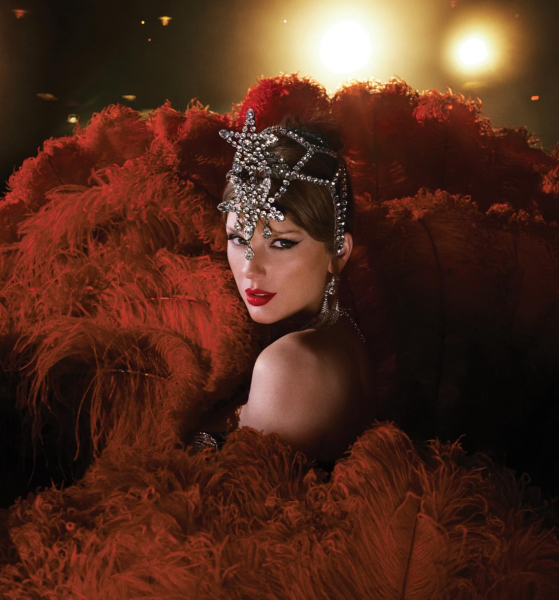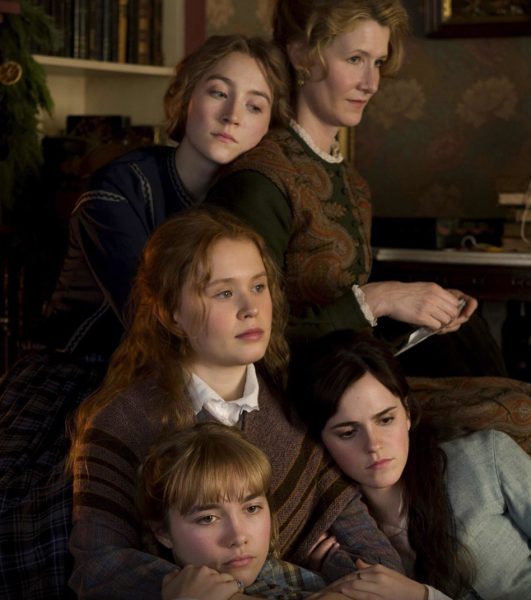Learning from Nahko Bear
Editor’s note: this article contains mention of sexual assault.
In the summer of 2018, I spent a couple of months living at the New York Catholic Worker, an intentional community committed to serving the homeless and living out the works of mercy in Manhattan’s Lower East Side. After our work for the day was done, a friend of mine and I would often sit on the roof and talk, sometimes for hours. We would listen to music there, sharing many strange and wonderful songs, including the likes of Bob Dylan, Rhiannon Giddens and the Mountain Goats.
Perhaps the most beautiful voice that blessed us with its presence under those starless skies was that of Nahko Bear, the frontman of Nahko and Medicine for the People. Nahko, whose ancestry is Puerto Rican, Filipino and Apache, was adopted and raised by white parents, never meeting his birth mother until he was in his 20s. The story of how his mom was human trafficked and how he came into the world because of sexual assault is deeply tragic. But remarkably, his vision is of forgiveness and joy, and his music is an effort to create healing for himself and his audiences.
I first heard Nahko and Medicine for the People back home in Maine at a public library screening of a movie about the spirit of the resistance at Standing Rock. Unaware of the backstory or even the name of the artist, the beginnings of tears formed from somewhere behind my blue eyes. I got those chills you get when you know a song matches a message with a sound that is beautiful enough to change the world or at least your relationship to it.
The song was “Love Letters to God,” and it spoke to the existential resistance of indigenous peoples in a way only music can. Its beautiful lyrics balance an acknowledgement of the courage “birthed from the womb on the first light of day” and a recognition of all the “many parts to a heavy heart.” The message is a call to action, as he ends the song with the repeated question, “if there’s no beginning, then where would you start?”
In the days, weeks, months and now years since first hearing it, I have played this song over and over and over, getting chills each time. Of course, I brought it to the roof and the humid darkness, where, maybe for the first time, I felt totally alive with a sense of emotional clarity.
The music video for “Love Letters to God,” which has now been viewed more than 2.3 million times, was filmed at the Oceti Sakowin camp at Standing Rock. It includes the familiar images of water protectors in traditional dress, flying upside down American flags and the vast camp that was built to facilitate the resistance. It is very much a protest song, appearing on the band’s album, “HOKA,” which gets its name from what Crazy Horse would say as he rode into battle against American soldiers: “hoka, hey” or “let’s go,” followed by “today is a good day to die.”
I was 17 when I watched Standing Rock unfold from the safety of my computer. Seeing the rubber bullets, the police with assault rifles and the people crying after being tear gassed, I began to wake up to our injustice system. But hearing the sound of the horns and the drums crashing down as Nahko intoned lines like, “Never been so proud of a people / When we’re fighting for a change / Not afraid to lose it all despite all the rage / We are animals / And we cannot be caged” added another dimension. I felt closer to feeling what it must have been like to stand in solidarity with those wonderful, prayerful water protectors. I felt like my mind was opened to the emotional reality of struggle as I heard him sing, “the battle that we face is the place where our scars come from.”
“Love Letters to God” also includes the intersectional connections necessary to bring about the creation of a just world. He references the dying words of Eric Garner as he sings, “I can’t tolerate the hate, and I’m losing sleep / Can’t breathe, cause they’re choking out a war in me.” This image is horrifying, evoking not only those tragic moments on Bay Street in Staten Island but the reality of America’s oppressive structures strangling the fight out of people. But for Nahko, alongside the horror is the joy of faith in powers beyond our troubled world that he seems to be channeling as he sings, “Take my hand / I won’t lead you astray / We will not go gently into the darkest of days.”
Because of Nahko, I began to understand that struggle is not only fighting oppression, but joyfully believing change is possible at the same time. I will forever be grateful to the band for that realization. In many ways, it has made it easier for me to find ways to answer the question that ends the song, “where would you start?”














































































































































































































Jen • Jul 5, 2020 at 5:21 pm
Seems like an incomplete recollection with his predatory behavior coming to light late last month. So much light and so much love. Love letters to god has been so important in my healing. But Nahko using his influence to prey on young girls who look up to him, and then to systemically silence their voices. Finding it hard to separate the man from the medicine.
your mom • Jul 4, 2020 at 2:08 am
this aged well
crykyt • Jul 2, 2020 at 11:15 am
And now he is being cancelled for numerous credible allegations of sexual assault and including that of numerous minor girls. 2020 can suck it.
Jackson Waldrop • Jun 30, 2020 at 11:49 pm
“Editor’s note: this article contains mention of sexual assault. ”
The mention of his birth coming as the result of an innocent woman’s sexual assault will in no way diminish the words of the many young innocent women that he grew up to then assault sexually. That many women from many different parts of this country and other countries abroad can’t share the same story about the same person with the same details without it bearing at least the high likelihood of being true. And I would say THOSE actions by far outweigh and negate the spiritually uplifting tingle that any of his music might induce.
NahkoIsAPredator • Jun 29, 2020 at 9:05 pm
Naoko is a predator.